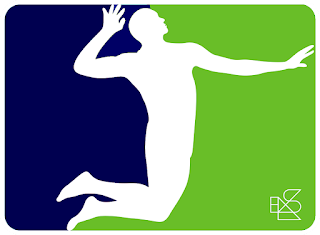How to Stop Sports Injuries
This is a simple story on how to reduce time lost due to injury.
I was originally going to call it 'what is proof?'. But then I remembered that sometimes I like people to actually read my posts, so I gave it a catchier, but far less clever title.
I'm in a group on Facebook for coaches around the world and someone posted a question recently suggesting a football (soccer) coach stopping players from trying to kick the ball really hard, because it will increase their risk of injury.
My response was that they were right, it will increase the risk of injury, but kicking hard is important so the solution is actually to make sure the child is physically able to kick hard without injury. I went on to say that can be done with some simple movement exercises 5 minutes at the beginning of practice, and 3 minutes at the end, every time (the durations are largely irrelevant, the point is regular, small periods of time).
Their response was completely reasonable. They asked for proof that those exercises reduced injury, how much they reduced injury, and how that was determined. Completely reasonable questions. Interesting though, no question about what those exercises actually are.
It got me thinking about proof and science. Because I didn't know the answer to those questions. I haven't actually done the research or read the studies. But my answer was:
- I have been fortunate to work with some of the best S&C coaches and medical staff in the world, in a couple of different sports
- Without exception, based on their research and experience, they recommended exercises done in this framework
- I then implemented those exercises, every practice, every match
- I did not do a double blind study
- I didn't wait for a year before implementing them so I could track time lost due to injury before and then after (even though this is still not remotely valid scientifically)
- Anecdotally is the only way I had of assessing their impact, and they made a huge difference
- I can say that after a couple of years, injuries to backs, knees and shoulders reduced
- I can also say that the ability to jump, move in a low position and execute some skills more effectively from a technical perspective increased
So, what is proof? I got advice from international experts that was specifically aimed at the age, gender, development level and long term goals of the children I coach. Then I implemented a plan immediately, and I'm very very happy with the results.
I think that is proof. I don't know if it is science. And I do know it is good coaching.



If you stopped at the first three bullets, I'd be totally fine. Things get a bit dodgy after that. It makes total sense to work based on the advice of experts, especially if that advice is based on their understanding of current scientific research (not just personal opinion). Even if you had actually documented proof of the impact on your own team(s), however, that is most definitely not "proof". At best it's evidence. Too small a sample with too much potential impact from "idiosyncratic" elements.
ReplyDeleteI stand corrected. Evidence, not proof.
ReplyDeleteI stand by 'good coaching'.
Regarding dot points 4 through 8, they are actually the point of the post. If you like, the point I'm making is that I already had the proof before I started. That is all the proof I'll be able to get. A big part of coaching is identifying a problem, finding the best solution you can, and implementing it. To not do it because you're not completely comfortable with the science behind it is not an option. Just like doing something where the overwhelming science suggest it is a bad idea is not an option.
I'd argue not being comfortable with the science is potentially a very good reason not to do something - if that lack of comfort is due to understanding the methodology and having good reason to believe there are real, legitimate issues with it (e.g. a survey that has strong selection bias). If, however, that lack of comfort is simply because the findings go against your own beliefs then that is most definitely not a reason to shoot it down. Of course, the vast majority of coaches don't have the education and/or background to make judgements based on scientific methodology, so we're mainly talking about the second form of discomfort.
ReplyDeleteAn important life skill for all of us is the ability to judge well the sources of information we use. You've had the advantage of working with a number of high quality sources of information - folks who presumably stay well educated in the developing science of their field. Those are the sorts of folks we should all be listening to. Not our own feelings or beliefs - or those of other coaches who don't follow the science and thus represent a sample of one (and are not scientific in any case).
So with respect to your response, "I haven't actually done the research or read the studies," I'd simply add "But my methods are based on the advice and practices of those who have - some of the best S&C coaches and medical staff in the world, in a couple of different sports." The rest of it really just muddies the water.
John, my exact point is dots 4 through 8. You don't HAVE to have done the science yourself.
ReplyDelete